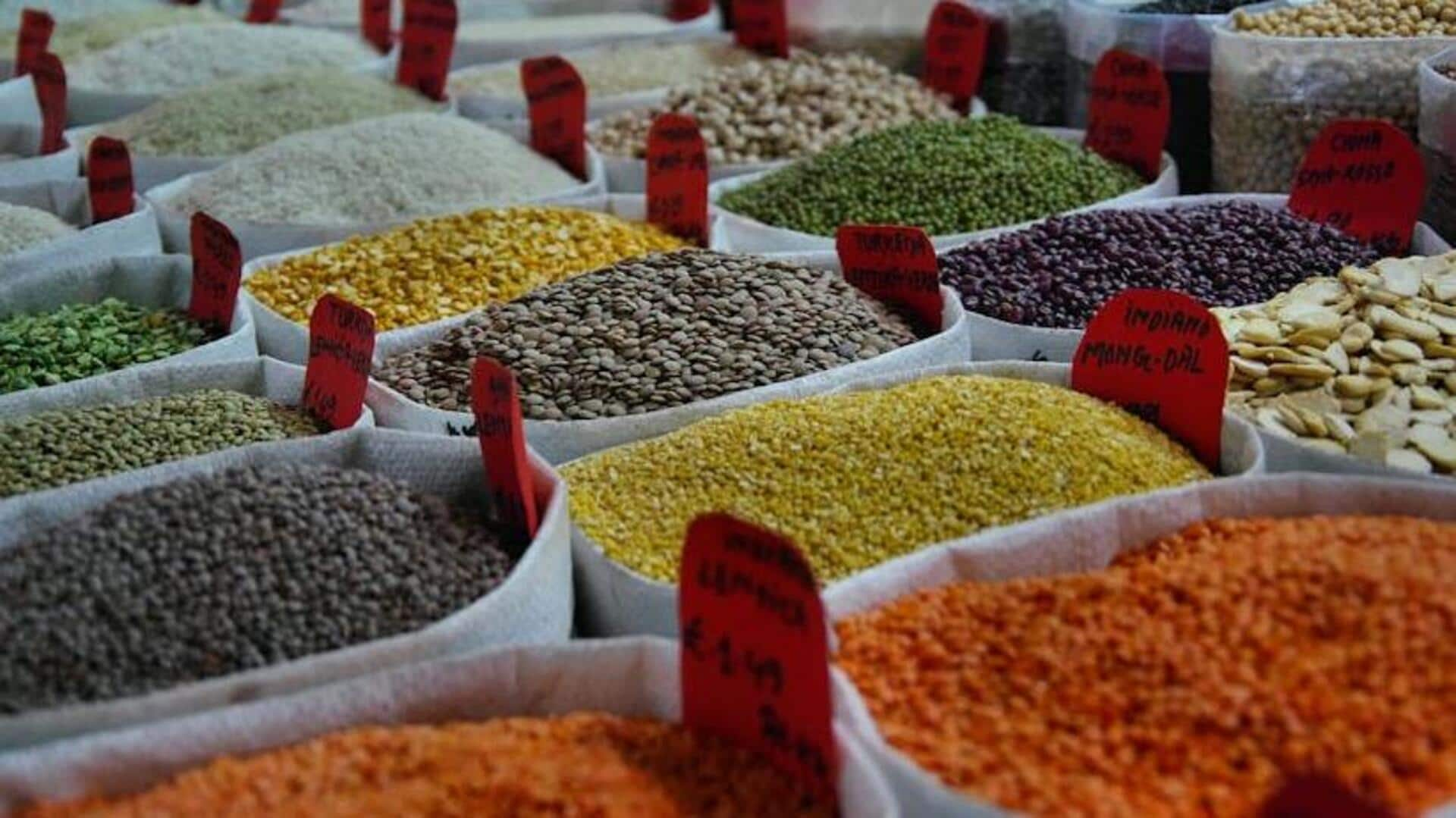
Why you should add these pulses to your daily meals
What's the story
Pulses are a staple in vegetarian diets, providing essential nutrients and versatility in meals. They are loaded with protein, fiber, and several vitamins and minerals, making them a great choice for nourishing everyday meals. Including a range of pulses can boost your diet's nutritional value while making it more diverse in flavors and textures. Here are some must-have pulses to add to your vegetarian meals.
Lentils
Lentils: A protein powerhouse
Lentils are available in various types such as red, green, brown, and black. They are high in protein and also cook quickly. Lentils deliver essential amino acids which help in muscle growth and repair. They are also rich in iron and folate, which are essential to keep you energized and healthy. You can add lentils to soups or salads to make them more nutritious.
Chickpeas
Chickpeas: Versatile nutrient source
Chickpeas are an extremely versatile pulse, be it hummus or stews, you can use them in anything. They provide an excellent source of protein and fiber without being high in fat. Chickpeas are packed with nutrients such as manganese, phosphorus, copper, folate, iron, magnesium, zinc as well as vitamins B6 and K, which enhance bone health among other benefits. Regularly including chickpeas might enhance your digestion due to the high fiber content.
Black beans
Black beans: Fiber-rich option
Black beans have gained popularity for their rich flavor profile and the number of health benefits they provide. These small legumes are packed with plenty of dietary fibers, aiding digestion processes efficiently while keeping you full for longer, thus preventing unnecessary snacking habits throughout the day. Further, black beans offer antioxidants, helping fight free radicals in the body, promoting better immune system function.
Mung beans
Mung beans: Nutrient-dense choice
Mung beans are unique because they're the most easy-to-digest yet nutrient-dense food available today. Loaded with proteins, fibers, and essential micronutrients like potassium, magnesium, calcium, etc., eating mung beans promotes heart health by reducing cholesterol and blood pressure naturally without any side effects whatsoever! Additionally, sprouted ones are even better as enzymes activated during germination increase the bioavailability of certain compounds present in these tiny seeds themselves.